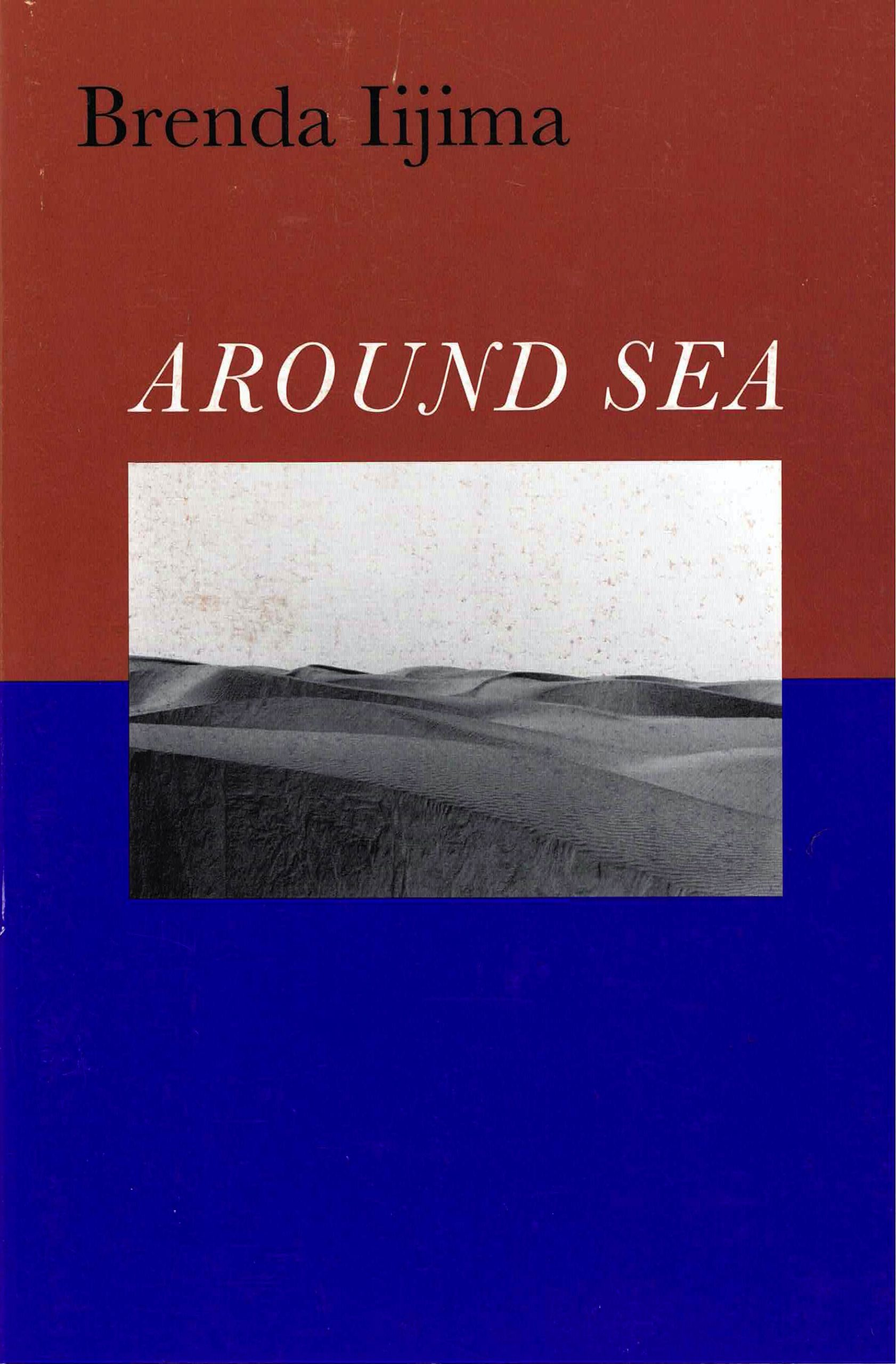Around Sea is comprised of six sections, each one elaborating a new level of understanding amid a progression toward an ultimate cosmic dispersal of text into bits of punctuation. Along the way, the poems articulate neither outline nor shape, originating a space where physiognomy intuits intensity.
Brenda Iijima
Praise for Around Sea
Elements, moods, poisons, obstacles; Brenda Iijima’s poems make use of all four, particularly elements, in forming the core of Around Sea. There is a strange, welcoming warmth to these poems that has nothing to do with forcing a personscape onto the land (though Iijima is starkly aware of that force’s inexorable severity): “a terrestrial in the face of extra.” I feel calm during and after reading Around Sea — not abducted, but included, as if presence could override fate through seeing, and getting it down onto the page.
— Anselm Berrigan
A brilliant visual and musical work, where the techniques of our times are perfected and abandoned one by one. What goes up, comes down, until the only way out is with it.
— Fanny Howe
Neither outline nor shape: this is the molecular flux of idea… in Brenda Iijima’s hard-as-diamonds epic. Around Sea plots a threat nexus over a flowering terrain and beneath the serene deep of “verdure attributed to rain,” bonitos, and species extinction… dividing into quanta of insight: the rock and steel we work and sleep in, as well as the ground we walk, support no truths that are not aerial… Iijima’s precision in uncanny exposition, social science apercu, and mercurial jurisprudence.
— Jack Kimball





As she swerves between extremes of scale, Iijima shows an understandable conflict between the yearning for context and resentment of context as a human imposition. Iijima’s concern with human intelligence is primarily in how it figures contexts, however improbable; in how it concocts formulas, taxonomies, and hierarchies. The dialectic she wrestles with is that between the borderless drift of nature, in which molecules of water, numbers, stars, and words are all dissolved in metaphoric equivalence, and the human effort to identify distinct elements and control their allegiances.
— Sarah Porter, How2
Iijima is a master crafter of soundscapes. Waves of sound work quixotically but insistently through echoes, internal rhymes or quirky half rhymes: “of weather/ Further” for instance. Or “plunging, plundering necks in foam/ thrust with wing’s wet.”
— Meredith Quartermain, Jacket2